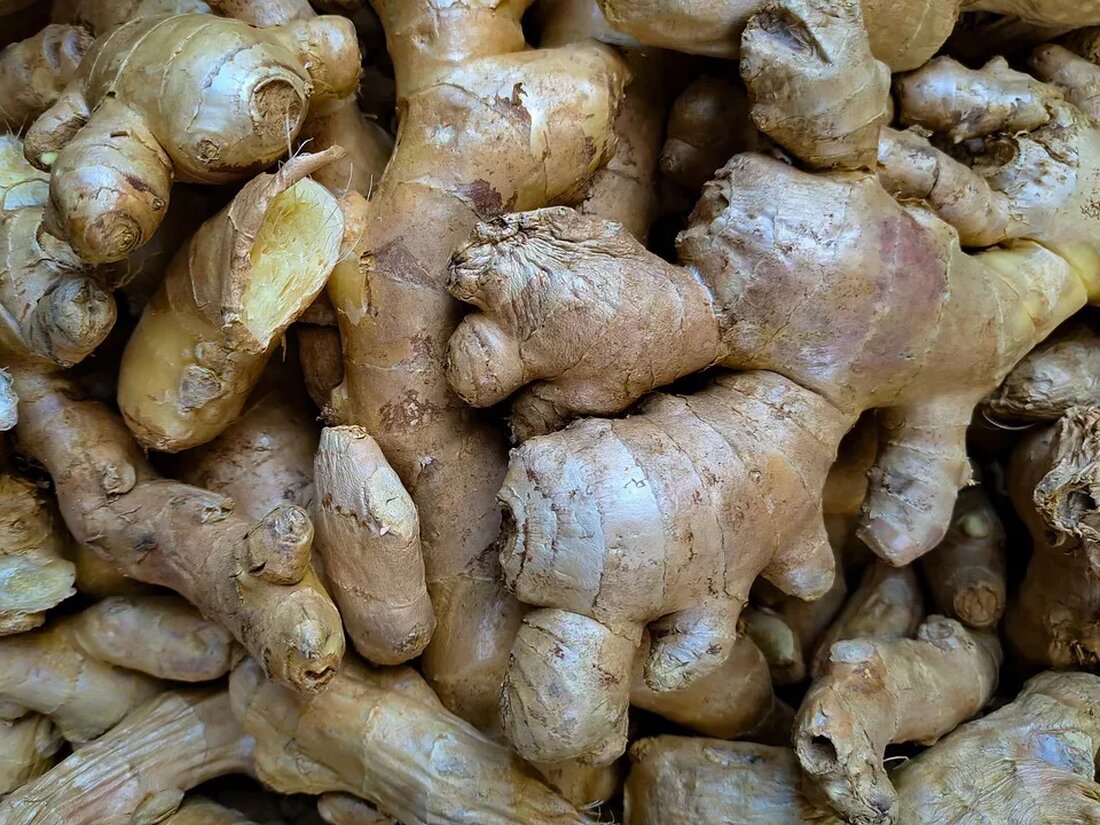Ginger: medicinal plant with tradition
Ginger: Medicinal plant with tradition Introduction Ginger (Zingiber officinale) is an excellent plant with medicinal properties that has been used in traditional Indian and Chinese medicine for thousands of years. Ginger is not only valued for its spicy note in the kitchen, but also for its numerous health benefits. This tuber belongs to the ginger family and has a long history as a remedy for various ailments. In the following article we will look at the different aspects of this amazing medicinal plant. History and Origin Ginger is a plant native to the tropical regions of Southeast Asia. It has been used for over 2000 years...

Ginger: medicinal plant with tradition
Ginger: medicinal plant with tradition
Introduction
Ginger (Zingiber officinale) is an excellent plant with medicinal properties that has been used in traditional Indian and Chinese medicine for thousands of years. Ginger is not only valued for its spicy note in the kitchen, but also for its numerous health benefits. This tuber belongs to the ginger family and has a long history as a remedy for various ailments. In the following article we will look at the different aspects of this amazing medicinal plant.
History and origins
Ginger is a plant native to the tropical regions of Southeast Asia. It has been cultivated in India and China for over 2000 years. Ginger has been spread to all parts of the world by traders and travelers over the centuries and has been used in various cultures.
The word “ginger” is derived from the Sanskrit term “srngavera,” which means “antler-like root.” The Latin term “officinale” indicates that ginger is a well-known medicinal plant.
Ingredients and health benefits
Ginger contains various active ingredients such as gingerols, shogaols and zingerones, which give it its medicinal properties. These compounds have anti-inflammatory, antioxidant, antimicrobial and anti-cancer effects.
One of the most well-known uses of ginger is to relieve nausea and vomiting. Numerous studies have shown that ginger is effective in combating motion sickness, morning sickness during pregnancy, and nausea caused by chemotherapy.
Ginger also has positive effects on the digestive system. It promotes gastric juice secretion and can help with digestive problems such as flatulence, heartburn and stomach cramps. In addition, ginger can also stimulate appetite and improve the absorption of nutrients.
There is also evidence that ginger can reduce inflammation in the body, which can help treat conditions such as arthritis and joint pain. Ginger also has a pain-relieving effect, especially for muscle and menstrual pain.
Possible applications
Ginger can be used in many different forms. Fresh ginger can be used in dishes to give them a zesty flavor. Ginger can also be added to tea, juice or smoothies. Ginger oil and ginger powder are also popular options.
However, there are some precautions to keep in mind. People taking blood-thinning medications should speak to their doctor before using ginger because ginger can affect blood clotting. Pregnant women should only consume ginger in moderation as large amounts can trigger labor.
Scientific research and studies
Over the past few decades, scientific research has intensively examined the health benefits of ginger. There are a multitude of studies confirming the medicinal properties of ginger and discovering new uses.
For example, a 2018 study found that ginger has a positive effect on blood sugar levels and may help control diabetes. Another 2019 study found that ginger may have anti-cancer properties and may inhibit the growth of cancer cells.
Conclusion
Ginger is a versatile medicinal plant with a long history and tradition of medicinal use. The various ingredients in ginger provide numerous health benefits, including relieving nausea, promoting healthy digestion, reducing inflammation, and relieving pain.
The uses of ginger are diverse, from use in the kitchen to various forms such as tea, juice or powder. However, it is important to observe the correct dosage and take into account possible interactions with other medications.
Scientific research has continued to explore the medicinal properties of ginger and has produced many positive results. However, further studies are needed to understand the full potential of this amazing medicinal plant.
Ginger is a natural way to promote health and treat many different ailments. It is a plant worth incorporating into your daily diet and wellness routine.

 Suche
Suche
 Mein Konto
Mein Konto
